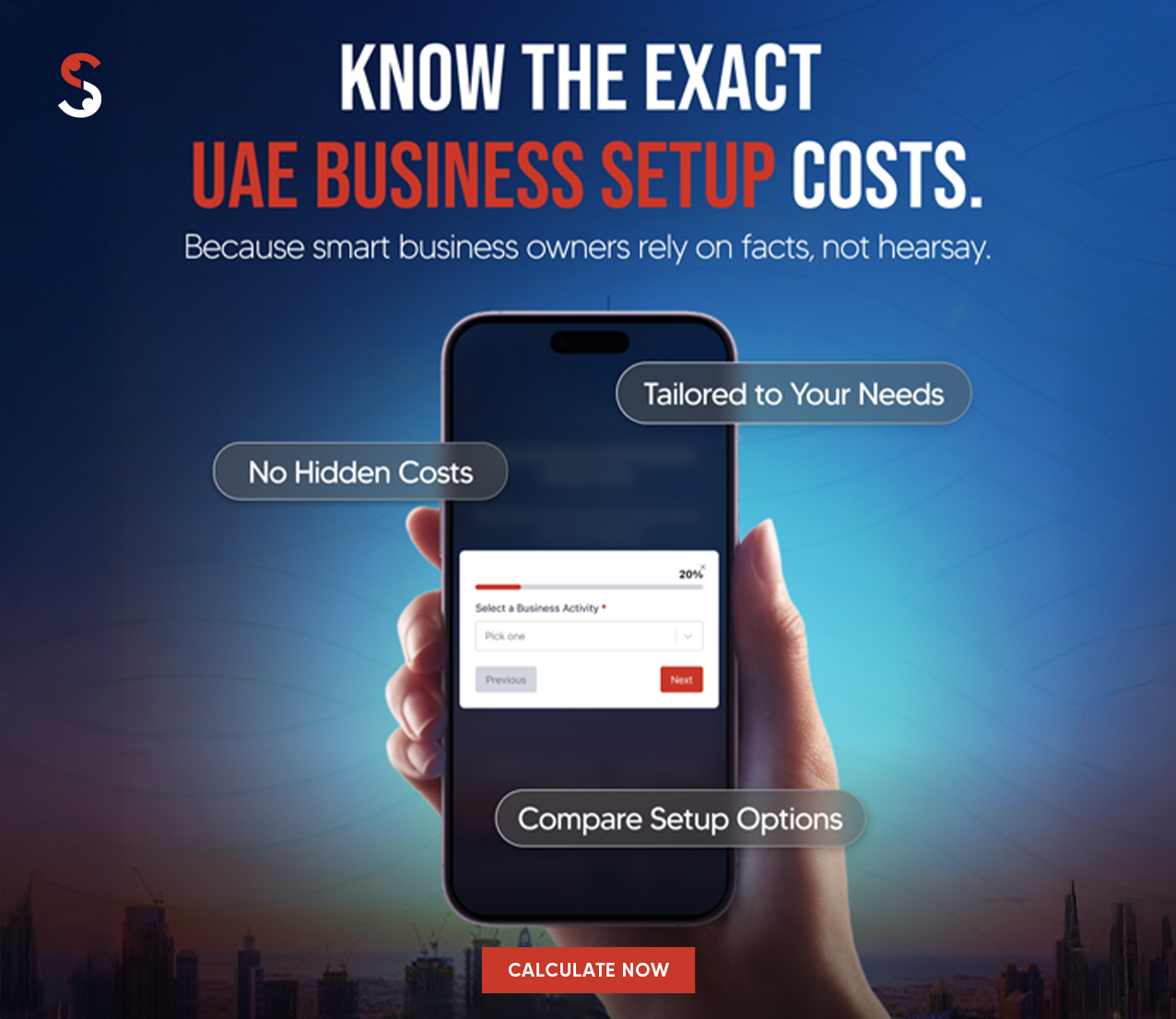Can a UK Citizen Start a Business in Dubai? Absolutely—many UK entrepreneurs have already done so successfully. Dubai has become a prime destination for British business owners, not just as a travel hotspot but as a thriving hub for growth. In 2024 alone, the city drew over $20 billion in foreign investment, with the UK among the top contributors. Recent data reveals that 36% of UK business leaders now view the Middle East, particularly Dubai, as a critical investment market.
And it’s easy to see why. Dubai offers zero personal income tax, world-class infrastructure, and a great lifestyle. Today, more than 180,000 Brits call Dubai home; that’s more than the population of Oxford. So, if you’re wondering whether you can open a business in Dubai from the UK, the answer is a big yes. The UAE welcomes foreign investors and even allows full ownership in many sectors. With the right guidance, starting a business in Dubai is not just possible; it’s also smart.
Can UK Citizens Legally Start a Business in Dubai?
Yes, it is legal for UK citizens to start a business in Dubai, and recent legislative changes have made it more accessible than ever.
Historically, foreign investors in the UAE were required to have a local Emirati partner holding at least 51% ownership in mainland companies. However, this changed with the introduction of Federal Decree-Law No. 26 of 2020, which amended the UAE Commercial Companies Law. Effective from June 1, 2021, this law allows foreign investors, including UK citizens, to own 100% of their businesses in many sectors without the need for a local sponsor.
The amended Commercial Companies Law permits full foreign ownership for over 1,000 commercial and industrial activities.
Business Jurisdictions in Dubai for UK Citizens
For UK entrepreneurs starting a business in Dubai, selecting the right jurisdiction—Mainland, Free Zone, or Offshore—is a critical first decision that shapes future growth. Each option delivers unique advantages tailored to different business objectives and target markets.
1. Mainland
Mainland companies are licensed by the Dubai Department of Economy and Tourism (DET) and allow you to operate anywhere in the UAE, including directly with the local market and government entities.
Benefits:
- Ability to trade across the UAE without restrictions
- Eligibility to bid on UAE government contracts
- No currency restrictions
- Wide range of business activities permitted
- 100% foreign ownership allowed in most activities
The mainland is suitable for UK citizens planning to serve UAE clients directly or open a physical store or office in Dubai.
2. Free Zone
Free zones are special economic areas that cater to specific industries and offer investor-friendly regulations. Dubai has over 40 free zones, such as IFZA, RAKEZ, Ajman Free Zone, DIFC, DMCC, Dubai Internet City, Dubai Healthcare City, and Dubai South.
Benefits:
- 100% foreign ownership
- Full repatriation of profits and capital
- Zero import/export duties within the free zone
- Quick and cost-effective setup process
- No personal or corporate income tax (for most businesses)
Free zones are suitable for UK entrepreneurs in sectors like tech, trading, logistics, media, and finance who want tax benefits and easier regulations.
3. Offshore
Offshore companies are primarily used for holding assets, international trading, and wealth management. They are not meant for direct business operations within the UAE.
Popular jurisdictions:
JAFZA Offshore, RAK ICC (Ras Al Khaimah International Corporate Centre)
Benefits:
- 100% foreign ownership
- Confidentiality and asset protection
- No requirement for office space or visa
- Cost-effective for global businesses
However, offshore businesses cannot rent office space or trade directly within the UAE market. As a result, UK investors often choose offshore structures for asset protection, to run global operations, or to hold shares in UAE-based companies.
How UK Entrepreneurs Can Start a Business in Dubai: A Step-by-Step Guide
UK entrepreneurs can easily establish a business in Dubai by following these key steps:
1. Identify Your Business Activity
Determine the specific business activity you wish to undertake, as this will influence the type of license required and the jurisdictions available. Dubai offers a wide range of permitted activities across various sectors.
2. Choose Business Jurisdiction and Legal Structure
Decide between setting up in the mainland, a free zone, or offshore. You also need to choose a legal form that aligns with your business goals and ownership preferences. Options include:
3. Reserve a Trade Name
Register a unique trade name for your business that complies with the UAE’s naming conventions. The name should reflect the nature of your business and adhere to cultural sensitivities.
4. Apply for Initial Approval
Submit an application to the relevant authority to obtain initial approval for your business activity and structure. This step confirms that your proposed business is permissible in the UAE.
5. Secure a Business Location
Obtain a physical address for your business, which is a prerequisite for obtaining a trade license. This can be a commercial office space, warehouse, or virtual office, depending on your business needs.
6. Obtain a Trade License
Apply for a trade license from the relevant authority (Department of Economic Development for Mainland or the respective Free Zone authority). The type of license: commercial, industrial, or professional – will depend on your business activity.
7. Open a Corporate Bank Account
With your trade license and legal documents in place, open a corporate bank account in the UAE to manage your business finances. Different banks have varying requirements, so it’s advisable to consult with several institutions.
8. Apply for Visas
To legally live and work in Dubai, UK nationals must obtain a UAE residence visa. This visa is typically sponsored by the company you establish and involves several steps:
- Entry Permit Application
- Medical Fitness Test and Biometric Scanning
- Emirates ID Registration
- Visa Stamping on Your Passport
Once you have your residence visa, you can also sponsor visas for your dependants and employees, if necessary.
Note: UK entrepreneurs can initiate the business setup process remotely. However, certain critical steps, such as opening a corporate bank account and completing medical tests for visa applications, require physical presence in the UAE.
What are the Documents Required for UK Nationals?
While the required documents are generally standard for all foreign investors, UK citizens should ensure they have the following:
- Valid Passport Copies
- Recent Passport-Sized Photographs
- Proof of Residential Address in the UK
- Tenancy Contract (Ejari)
- Comprehensive Business Plan (especially for Free Zone or offshore setups)
- No Objection Certificate (NOC) if currently employed in the UAE
- Ultimate Beneficial Owner (UBO) Declaration
- Bank Reference Letter
It’s also recommended to have all documents notarised and, if necessary, attested to meet UAE legal requirements.
What Are the Business Setup Costs in Dubai for UK Citizens?
Starting a business in Dubai as a UK citizen involves various costs, which can vary depending on the type of company, chosen jurisdiction, and specific business activities. On average, UK nationals can expect to spend between AED 25,000 and AED 50,000, which is roughly £5,375 to £10,750, for a standard setup. This estimate includes licensing, registration, office space, and visa-related expenses.
One of the major components is the business license fee, which differs based on jurisdiction. For a mainland business, license costs typically range from AED 12,000 to AED 30,000 (approximately £2,150 to £10,750). In contrast, Free Zone licenses start at around AED 10,000 (roughly £2,580) and may include office space and visa packages.
UK citizens should account for costs like bank setup, visas, mandatory health insurance, document legalization, and legal fees. Overall, while Dubai offers a competitive and tax-friendly business environment, UK entrepreneurs should carefully plan their budgets.
What are the types of UAE residence visas for UK citizens?
UK citizens can apply for several types of UAE residence visas, depending on the purpose of their stay. Here are the main types of UAE residence visas available for UK nationals:
1. Employment Visa
One of the most common types is the employment visa, which is issued to individuals who are hired by a UAE-based company. This visa is sponsored by the employer and is typically valid for two to three years.
2. Investor Visa
Another popular option is the Investor or Partner Visa, which is ideal for UK nationals who invest in or start a business in the UAE mainland or free zones. The visa is sponsored by the company in which the investment is made and usually remains valid for two to three years.
3. Freelance Visa
The Freelance Visa is suitable for self-employed professionals in permitted sectors such as media, technology, or education. Offered through select UAE free zones, it combines a freelance permit and residence visa, typically with 1–2 years of validity.
4. Student Visa
UAE universities and colleges sponsor student visas for enrolled UK students. The institution-sponsored visa remains valid for one year and is renewable annually until the student completes their academic programme.
5. Golden Visa
The Golden Visa offers long-term UAE residency (5 or 10 years) to qualified applicants, including investors, entrepreneurs, exceptional professionals (scientists, doctors), and outstanding students.
6. Retirement Visa
For UK nationals aged 55 and above, the retirement visa offers a long-term stay option. Applicants must demonstrate financial stability, such as owning a property worth AED 1 million or having a monthly income of AED 20,000. The visa is valid for five years and can be renewed.
What are the Benefits of Starting a Business in Dubai from the UK?
Here are some key reasons why UK citizens are increasingly choosing to start businesses in Dubai:
1. Relief from the UK’s Growing Tax Burden
Many UK entrepreneurs are moving to Dubai to escape rising taxes back home. With no personal income tax and fewer business levies, they find it easier to grow and retain profits, something becoming harder in the UK.
2. Better Lifestyle for Families
Dubai offers a safe, clean environment with top-tier healthcare and British-curriculum schools, making it ideal for UK families looking for a higher quality of life.
3. Simple and Fast Business Setup
Setting up a business in Dubai is often quicker and less bureaucratic than in the UK. Entrepreneurs can register their business, open a bank account, and start trading within weeks.
4. British Business Community
There’s a strong British presence in Dubai; over 240,000 UK nationals reside here, and support networks like British Business Group Dubai offer valuable connections.
5. Access to UAE Banking & Financial Services
UK citizens benefit from reliable banking, multi-currency accounts, and ease of international transactions, which are important for global operations.
How Shuraa Helps UK Entrepreneurs Set Up in Dubai?
In conclusion, UK citizens can start a business in Dubai, and it’s easier than you might think. With no personal income tax, a great lifestyle, and access to global markets, Dubai is becoming a top choice for UK entrepreneurs. If you’re ready to take the next step, Shuraa Business Setup is here to help.
We take care of everything, from getting your business registered and handling visas to opening a bank account, finding office space, and managing all the paperwork. We also provide tailored support to help UK citizens transition smoothly and set up their business with ease. Get in touch with our experts today.
Frequently Asked Questions (FAQs)
1. Do UK citizens require a visa to set up a business in Dubai?
Yes, UK citizens need a UAE residency visa to legally own and operate a business in Dubai. This can be obtained through business or investor visa options.
2. Can I start a business in Dubai without living there full-time?
Yes, you can run your Dubai-based business remotely, especially if you appoint local managers or use virtual office services. However, some visa types may require occasional presence.
3. Can I open a UAE company bank account if I move my UK business to Dubai?
Yes, once your company is registered in Dubai and you hold a residency visa, you can open a business bank account with local or international banks.
4. What is the cost of living in Dubai compared to the UK?
While Dubai provides a tax-free salary structure, expenses such as housing and education can be relatively high. That said, most UK expats find the exceptional quality of life outweighs these costs.
5. Is 100% foreign ownership allowed for UK citizens in Dubai?
Yes, in most sectors and free zones, UK citizens can now fully own their business without needing a local Emirati partner.
*Disclaimer: The information in this post is for general guidance only and may change due to updates in government policies or regulations.










